WHAT IS YOUR OPINION? Let us know in the comment section.
The threatening environmental crisis is undeniable. The failure to take remedial actions can be blamed on governments who are more interested in retaining voters goodwill than saving Nature. The same is true for industry which are only interested in financial gain. The fundamental culprit however is the human aptitude for comfortable, if not luxury, living. This is driving industry to extract more and more resources with its concomitant degradation of the ecology. It also discourages governments to follow a path of economic degrowth. The issue at hand is: What does simplistic living mean, and can the rich (and especially the ultra-rich) be convinced to accept a sustainable lifestyle?
The environmental crisis is fast coming to a climax – well within our life expectancy. However, even knowledgeable people are getting “stimulation-tired”. Will the flood of academic reviews, like this contribution, only be filed as yet more comments? The Buddhists say, “inactivity is also an action”. If nothing substantial happens, we will soon have to adapt to, and survive in, a hazardous environment. This is an unpleasant probability. Who or what will be blamed?
Nature has developed a resilient character over millions of years. Any unwelcome condition or species has been absorbed, and equilibrium restored. A sustainable, circular, system has developed. Humans have disrupted this balance in the short period they have acted as the dominant species. The humans are the only species that is not organically part of the system but dominates it to nature’s detriment. We are still adamant that we can adapt nature to supply our material desires. Whenever a resource depletion becomes a threat (e.g. calcium in the soil), or where a nature catastrophe (drought) shows up, humans with its “power of invention”, always finds a scientific or technological way to overcome the restraint. It is a constant fight of man versus nature, instead of man cooperating with nature. If the concept of “survival of the fittest” holds true, nature will survive and mankind will, sooner rather than later, be pushed out of the system. Nature has no crisis; humans have! We plant crops in climatically marginal areas and when the cyclical pattern of rainfall results in less rainfall than the “normal” we call it a drought. There is no such thing in nature as drought! It is people who plant crops that do not correspond with Natures directives. The drought is relieved by massive energy input of irrigation schemes. Will we be able to counteract and work against natures directives indefinitely? Global warming comes to mind with its devastating effects which we seemingly cannot counteract any more. If we say we are sliding towards an unavoidable catastrophic abyss, we are not using academic jargon. It means the poor, as well as current middle-class citizens, will soon not have enough food on their tables! Who is responsible?
It was even before the 1950’s that we were warned by scientist of the threatening consequences that industrial development has on the environment. However, it was not until 1992 that we started to pay serious attention to the problem by way of the Rio Declaration. In 2000, the United Nations member states unanimously adopted the Millennium Development Goals (MDGs) with the aim to, among other, reduce extreme poverty by 2015.

Photo: Ecosystems supporting life on Earth is not as robust as once believed. For the sake of long-term survival we need to understand, restore and protect all that is nature.
A decade after the Rio Declaration, in 2012, the Sustainable Development Goals (SDGs) were accepted by the UN as a global framework for sustainable development. It was in August 2021, that a UN report issued a Code Red warning that we are entering a no-return crisis. Yet, in 2023, at the 28th COP meeting (Conference of the Parties to the United Nations Framework Convention on Climate Change), the leaders could not provide proof of substantial progress.
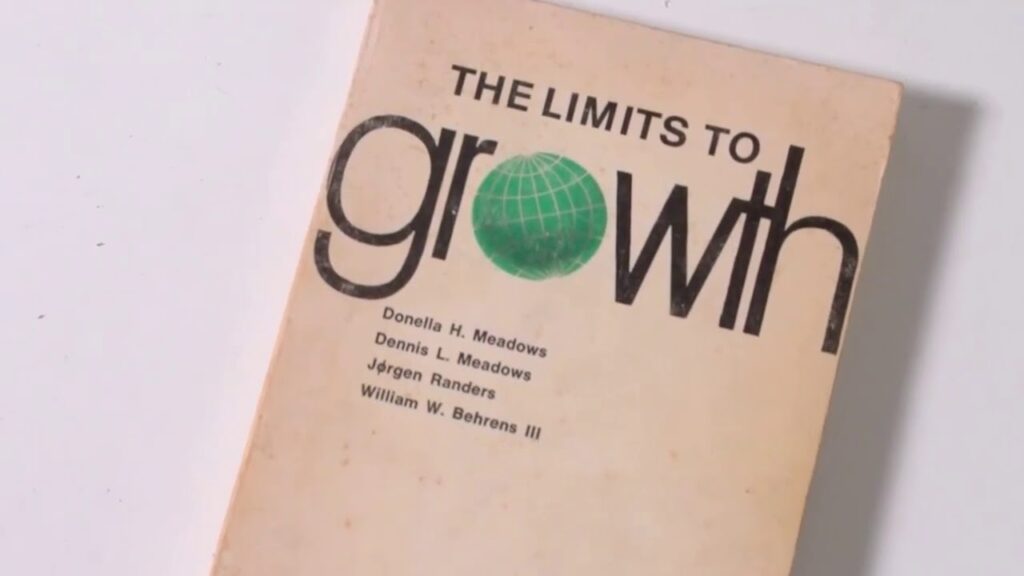
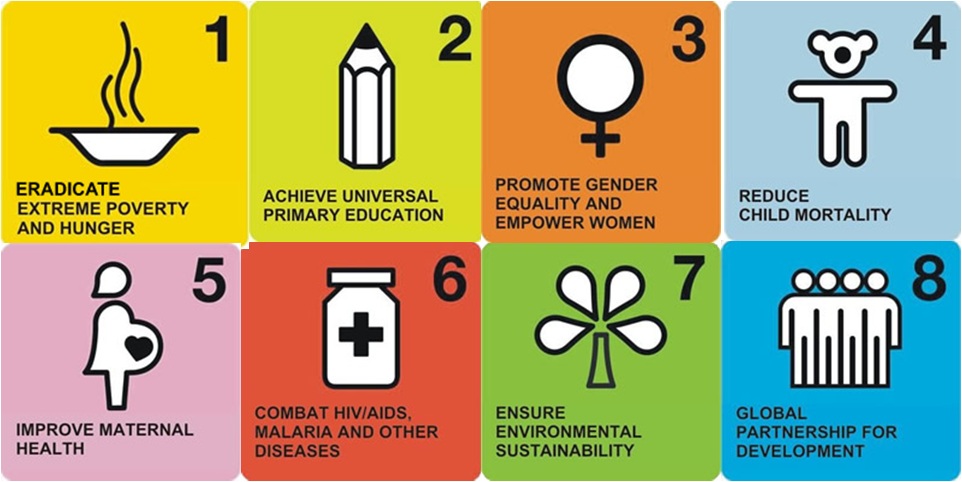

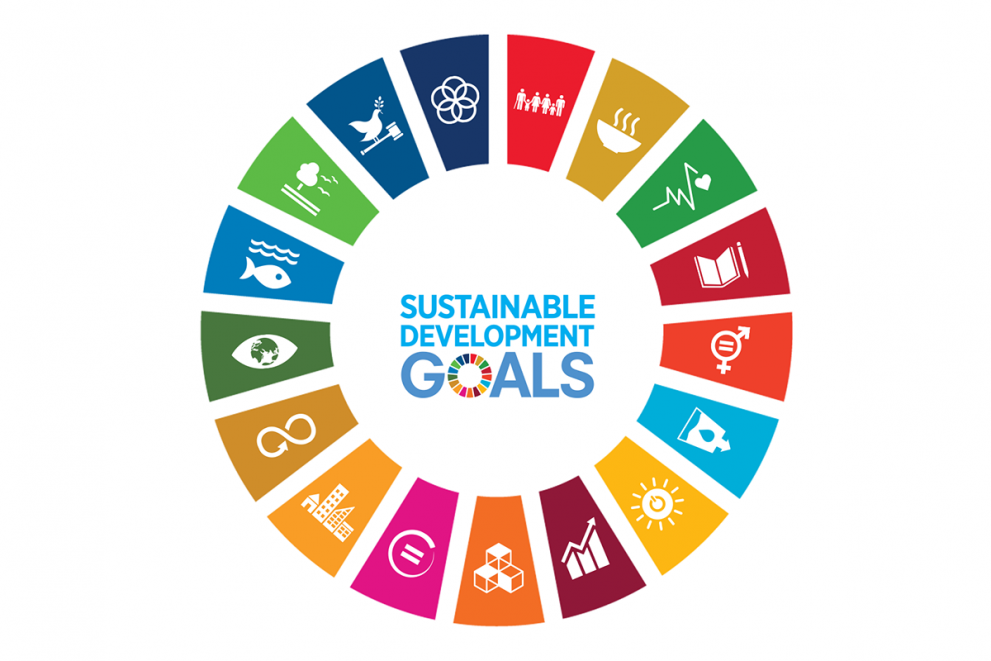
We are heading, tyres screeching, towards a dead end. The 3 degrees Celsius rise in global temperature, which UN Secretary-General Antonio Guterres refers to as the “environmental abyss”, is imminent. When environmental stresses can no longer be absorbed by nature, the ecosystem will reach a point of no return – the tipping point – and it will collapse.
Notwithstanding many global treatises governments are not likely to enforce drastic measures to reduce economic growth. Governments are not willing to apply measures that could lead to lowering of standards of living as it would directly affect them at the polls.
“Current governments borrow from tomorrow’s non-voting children so that their voting parents can consume today…only to leave their descendants an inheritance of a grossly indebted nation. If what results is an intergenerational tragedy which the non-voting will pay for, it is a profoundly undemocratic outcome.” (Michael Power, Daily Maverick 09/07/24).
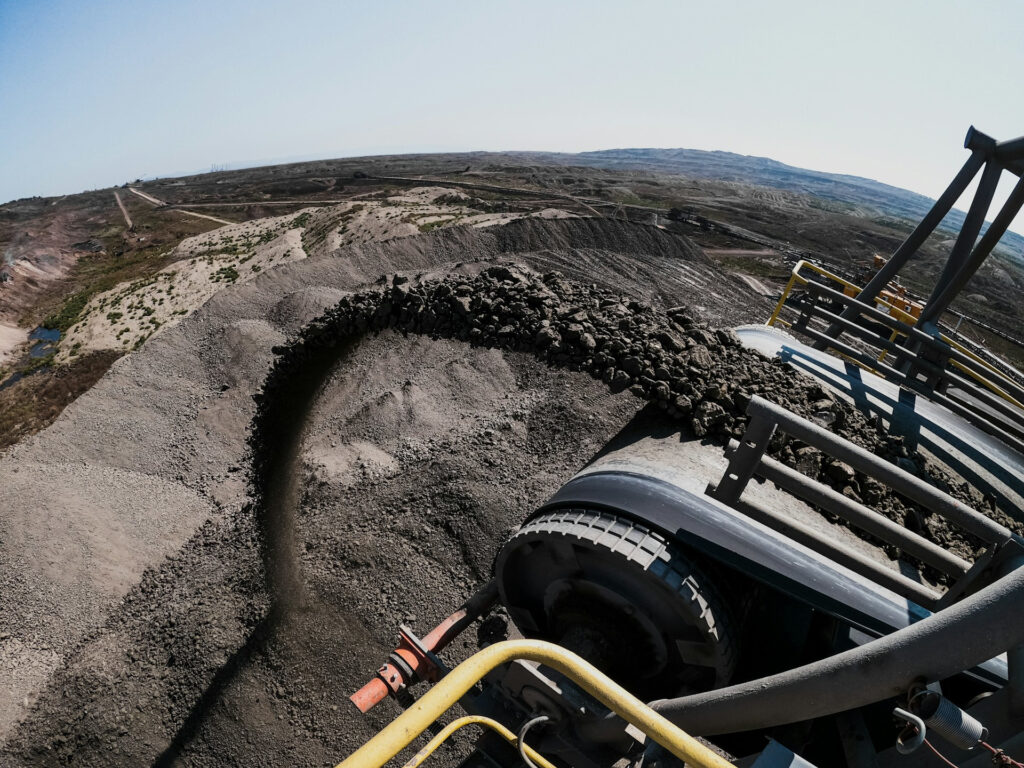
Photo: Industry with its reliance on fossil fuel like coal has devistated the natural environment
The industrial path reads more-or-less as follows: Extraction of resources – production of food and other necessities – pollution of sea, land, air and water, degrading of resources’ potential – shortage of resources – infusion of extra new techniques and energy sources for more extraction – production of more “necessities” – more pollution-…..etc. This is the normal production line for a growing economy and increase of welfare of people.
The blame for environmental deterioration is thus generally laid upon industries that extract and pollute resources indiscriminately – ignoring both quantity and quality of resources for the benefit of profit. As illustration, fossil fuel interests are steering us towards environmental degradation with unimaginable suffering, so that corporates can keep on enriching themselves and pocketing profits (Joubert, 2023).
Although it is true that technological development has been (and largely is) responsible for the environmental crisis, the possibility that technology could become an important instrument in the solution of the crisis should not be overlooked.
Technology did bring about many problems, but technology also offers many solutions. As the saying goes: “Necessity is the mother of invention.” In this context, Simon (1990:24) wrote, “It is amazing that resource shortages usually leave us better off than if the shortages had never arisen. If firewood had not become scarce in the 17th century, coal would not have been developed. If coal shortages hadn’t loomed, oil wells would not have been drilled.” Alvin Toffler forecasted already in 1980 that a large-scale development in electronics would mean the end of the heavy industries that caused so much deterioration of the environment and will reduce pollution due to travel/transport to a minimum.
Examples of recent developments in science and technology are many: Increased food production via GMO, biodegradable plastics, recycling techniques, electric cars, small wind generators to suit private homes; jets flying with a carbon negative biofuel made from algae, unlimited energy from hydrogen and the capture of geothermal energy on a scale large enough to meet human energy needs for millions of years (Hugo & Hugo, 2024).

Photo: Industry and personal carelessness pollute water resources

Photo: Factories cause large scale air pollution

Photo: Mining devistates soil resources
What is interesting is that these new inventions were not spontaneous developments but is being driven by necessity. Necessity is the mother of invention. As icebergs are starting to melt, and climate is changing, we are desperately attending to global warming. After scientists found a hole in the ozone layer, we banned the ozone-harming chemicals (chlorofluorocarbons – CFCs). We found that acid rain is caused by sulphur dioxide and nitrogen dioxide that damages soil, trees, and aquatic animals thus we arranged international treaties to limit this effect. Shall we keep on “extinguishing fires where we see smoke” or avoiding them beforehand by adhering to Nature’s directives? Is eco-friendly technology the “license to carry on exploiting non-renewable resources and to pollute in anticipation that it will (might) “deliver the goods”?
The role of industrial growth will thus have to be reassessed. It is highly unlikely that industrialists will, willingly (out of compassion), reduce income for the general good of the environment and for the larger global community. It thrives on the demand by the market forces. Such degrowth will never succeed unless the disposition of people (the driving market) does not change.
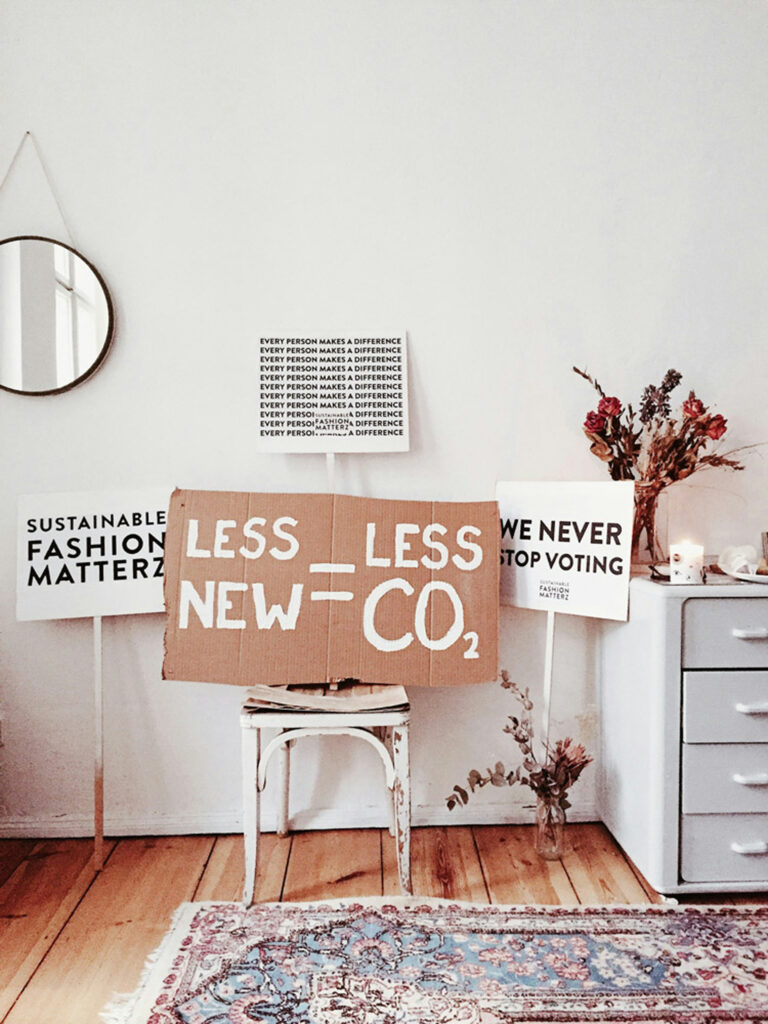
Photo: Living sustainable does not necessarily mean we all need to become poor.
To blame industry is thus not correct. It is not industry and capitalistic industrialists that are to be blamed primarily. The blame needs to be placed on the people who are driving the demand for supply; with industrialists only too willing to oblige by increasing production, even if it is to the detriment of nature. This amounts to a temporary win-win situation that will eventually become a no-win situation.
The primary driving force for environmental degradation is thus people’s (excessive) demand. The demand-supply force drives the exploitation of limited and sensitive resources and the concomitant degradation of the environment through pollution, leading to global warming. This degradation can be reversed by changing to a degrowth economy which is in balance with nature’s provision capability. In the words of Kevin Bloom: “The simple fact is, if the climate crisis is not going to bring on the collapse of modern civilisation, the world will need an entirely new economy.” (Rudin, Daily Maverick (Johannesburg) 3 MAY 2021).

Photo: Since 2020 the richest 1% grabbed almost twice as much as the bottom 99 percent of the world’s population.
We are however seemingly not going to adapt willingly to the pace of nature. We still believe we are in charge as the “crown of creation” that can dictate to nature – not the other way around. This amounts to scary arrogance. If the natural principle of “survival of the fittest” holds true, nature herself will eventually define the rules for the struggle and overcome. Neither can we overcome that Law of Thermodynamics which states that we cannot produce new matter.
We argued that the desire for luxury living lies at the heart of the problem. Neither industries nor governments are likely to change their policies due to selfish reasons. People are all striving for a higher standard of living. This raises some further questions.
How willing are people to reduce their standard of living to balance the demand-supply equation in a sustainable way?

Photo: Wasting Water
“People simply do not care a damn”
Don Pinnock
According to the NIMBY principle (Not In My BackYard) most people seemingly will adhere to the concept of conservation as long as it does not inconvenience them. In 2018, the severe drought in the Western Cape demonstrated how challenging it is to convince people to lower their amenities. Repeated warnings did not reduce water usage. With dam levels down to 30%, and a dry summer approaching, drastic Level 6 measures were implemented in January 2018. These measures limited the amount of water available per household in Cape Town to 50 litres per person per day with heavy penalties for transgression. With the “dry-tap” scenario now becoming a reality, the financial consequences and convenience issues (the realisation that people will be financially penalised and not have water to flush their toilets) made people change their attitude towards conserving water. Nothing else!
The crisis was thus averted by implementing behavioural economics and legislation. Change in people’s perception and their resultant action need to happen by decree and/or by realising the need/urgency for, and the benefits of, the envisaged change.
Up to now, education and the dissemination of information of the danger of an environmental crisis to the public have not shown significant results. According to Don Pinnock:” People simply do not care a damn”. This leaves us with enforcement – either by decree or by way of people realization of the urgency to escape the crisis.
The dilemma facing us has had a complicated origin; so is the possible solution(s). All that we know for sure is that the environmental problem is due to actions of humans. Nature does not harm itself. But what influences our actions that is degrading the system? It is not due to our logical thinking, otherwise we would not have arrived at the situation where we are now. It probably lies much deeper in the sphere of the emotions, desires, beliefs, attitudes, ambitions, etc. of people who might be striving for better living conditions, or for more comfort, or prestige, or due to lack of knowledge and deeper comprehension.
Suggestions as to resolving the problem appears regularly in the media. At the risk of over-simplifying the issue, one could say that the discourse range between two extreme options: “back to Nature” or “subdue and reign”. Perhaps we must have the wisdom to “do the one and not neglect the other” – in a sensible way. It assumes two-fold options.
Sooner or later, we will have to realise that resources are getting so scarce that we will have to adapt to a more modest standard of living as the 1st Thermodynamic law tells us that matter cannot be demolished nor can new matter be created.
As said, such a process of being satisfied with fewer conveniences and luxuries will not be easily accepted by people unless necessity is the driving force. The general population is seemingly becoming more and more aware of the reality of the situation.
The value of capitalism is to inter alia (apart from enriching the individual industrialists) create jobs. If that was based on productive manufacturing of essential commodities, one could wholeheartedly agree to its value to society. What is needed is however a reduction of demand for luxury services and unnecessary materials. People, and not industry, is ultimately (via demand) responsible (and thus in charge) of what and how much, products will be produced. While the implementation of degrowth laws by governments is unlikely, people will soon realise that they have no choice.

Photo: Simplistic living does not imply abject poverty

Photo: Self-determination does not mean that one live in luxury
Simplistic living based on reduced demand is not as far-fetched as it seems. In a recent extensive global study (Andre, P., et al.2024) it was found that 69% of the world population is willing to incur a personal cost of 1% of their personal income to fight climate change, and the overwhelming majority (>80%) demands political action and supports pro-climate norms. This indicates that the world is becoming united in its normative judgement about climate change and the need to act.
An extremely noteworthy statement made at the World Economic Forum (Davos, Feb 2024) was that the ultra rich is asking (!) for an (one digit) increase of their tax obligations so as to make funding available for sustainable projects. One might argue that they realize that it will not have the effect that they will have to lower their standard of living whilst improving the quality of the resource base (on which they also depend). But even more important: rich and poor cannot live side by side for ever. Social unrest can negatively affect their position in the economy.
Fact of the matter is that there IS funding available for a completely new wellbeing economy for progressive sustainable living.
More simplistic living does not imply poverty, but is it necessary to have three cars (that can reach 160 km/h in 60 seconds) per household? Can we do without a 4×4 in the city? Are annual holidays abroad better than a domestic getaway? Building mansions instead of basic comfortable housing is (or should be) perfectly acceptable. Walking or cycling to work is better than driving a car. Swimming in a pristine river pool is as good as (better than) an Olympic standard swimming pool. Excessive eating of exotic cuisine or fast foods is no better than home-made dishes which will save many expenses and is hugely advantages to the environment and to the local farming industry and our health. Further examples are numerous. Such change-over can be implemented with minimum reduction in comfort for the citizens of the middle-income class and increase the quality of life of the poor.
In his epic book “Small is beautiful” Schumacher (1973) argued (long ago) that the reduction of large industries in favour of small home-based economic activities, will have a huge positive effect on the environment, the economy, and the livelihood of the poor, allowing the desperately poor not only to survive but to contribute to the economy and experience a life consisting of basic requirements.[1]
With a growing world population, we have a choice of either to carry on attempting to increase current industrial “development” and (supposedly) increased “quality of life” or sink into a tragic global shortage of resources – food and other necessities for all. The 5% of the global super-rich population also will not be able to survive without the masses of poor people that must produce the manual labour. But the desperately poor will not accept the disparity in living conditions for ever. As Mother Theresa said, “We must live more simply so that others can simply live”.
[1]Had we listened things would have been better.
Or rather, they do have a choice: either carry on living in denial for the next decade or willingly introduce economic degrowth by accepting and implementing simplistic living.
As said, drastic legislation pertaining to degrowth is also not likely to come from democratically elected governments. Change will have to come from the private sector. Where governments fail to deliver services in harmony with environmental conservation, a localised and privately driven green economy will have to develop from the bottom up. Individuals and local community groups need to organize themselves into self-sustainable, privately driven, circular green economies out of necessity. It will not come due to love for, nor moral conviction, towards nature. They will need to do this in order to put food on their tables and have public services rendered in an environmentally sustainable way. This applies to individual households as well as neighbourhoods and towns, which application must eventually spread nationally and internationally.
According to Parry-Davis, the South African government clearly does not have the vision, finances nor political will to ensure sustainable environments. There is thus a growing movement towards, what he calls “transition towns”, where local private initiatives take over the neglected functions of government
This is possible, as evidenced by examples of successful local communities. In South Africa, the process has already started organically. One example is private electricity generation as the embattled state-owned Eskom fails to constantly deliver electricity. As was indicated, private systems (wind and solar) already exceed the power supply of some of our largest (coal) generating stations. The same is true for private transport of goods by road. Likewise, the Post Office has practically been replaced. Private schools, online schools, and home schooling, provide alternatives to government schools who do not deliver the same results; and many more. Even some of the judiciary’s tasks have been taken over by private prosecutors. Privately organized removal(and recycling) of trash and repair of local roads, neighbourhood security instead of a non-functional police service, communal gardening, and the forming of groups for commuting, are becoming a trend. Efficiency in the economy can release more people and energy to the primary industries such as food production.
To arrive at simplistic self-sustaining living entails more than saving of, and generating, one’s own electricity; or saving water (in the kitchen, bathroom and garden) and by catching rain from roofs. Developments such as urban agriculture, urban forestry, private vegetable gardens, planting of fruit trees instead of exotics, ecological viable parks with endemic plants instead of manicured “ecological green deserts” needing massive energy input in the form of fertilizers, insecticides, herbicides and irrigation systems as well as maintenance (lawn cutting services) are but some of the myriad applications to ensure a sustainable urban environment.
Cooperation within neighbourhoods by actions such as sharing of facilities and services can play a major role.
The sharing of electricity by private initiative is being shared with other communities (called wheeling). Lawn moving, swimming pools, handyman services, informal creches, home care for infirm people, etc. can be extended to professional services such as legal advice, computer training, to name but two services that many people have need for.
SEDA (Small Enterprize Development Agency) is an Agency of the Dept of Small Business Development (SMME,s). It is a step in the right direction.
(Continuation of Option 2: Self-determination) A system can be devised where such reciprocally delivered services between community members are provided in return on the basis of, not monetary payment, but by using accumulated hours of service rendered to others.
This concept of self-sustainable living is by no means a novel one. Historically it reaches back to rural life before industrialization. Indigenous rural households in South Africa used to live in harmony with nature with very little, if any, external input. They did not have cars, electricity, flush toilets, running water, irrigation systems, holiday homes, motorboats, and private jets. There were no manicured gardens, sports facilities, amusement parks, trendy clothes, and shopping centres[1]. Yet, they lived self-sufficient lives and managed to provide for their own needs. One can debate to what extent rural people were worse off than modern people with capitalistic “high pitch” lifestyles, characterised by comforts but also much stress. Obviously, modern urban living with medical services and vocational training cannot be changed into a slash-and-burn economy with communal grazing and agricultural land.
The massive process of urbanization in recent decades was the result of industrialization. Degrowth will reverse this trend and people returning to the land, assisted by sensible technology input, will help in establishing the original sustainable life. Even if people (the rich) do not like the idea (and they won’t) they will have to adapt; rather sooner than later. The later the more difficult it will become, until it is too late.
[1]These conveniences are of course essential if we are to continue on our road to raising standards of living.
While the formulation of degrowth laws is unlikely, people will shortly realise that they have no choice. As was said, they do have a choice: either we carry on living in denial for the next few years or willingly introduce economic degrowth by accepting and implementing simplistic living. This is possible, as evidenced by examples of successful local communities. In South Africa, the process has already started organically. One example is private electricity generation as the embattled state-owned Eskom fails to deliver electricity. The same is true for private transport of goods by road since Transnet has collapsed. Likewise, the Post Office has practically been replaced by the privately run Postnet and courier services. Private schools, online schools, and home schooling provide alternatives to government schools.
This process of self-determination and simplistic living based on reduced demand is not as far-fetched as it seems. It can be implemented with minimum reduction in comfort for the middle class, and major enhancement in living standards for the poor. People must therefore be nudged to reduce their impact in order to live sustainably, allowing the desperately poor to survive.
“We must live more simply so that others can simply live”
Mother Theresa
Rural households in South Africa used to live in harmony with Nature with very little, if any, input from outside areas. They did not have modern conveniences (cars, electricity, flush toilets, running water, holiday homes, manicured gardens, modern sports centres, amusement parks and shopping centres restaurants and boutique shops), yet they lived life to the full. One can debate to what extent traditional rural African life was worse off to a modern capitalistic “high pitch” lifestyle, characterized by stress. It is of course not debatable if modern urban living can be changed to an original type of ”slash-and-burn” economy with communal grazing and agricultural land, without modern medical services and vocational training.
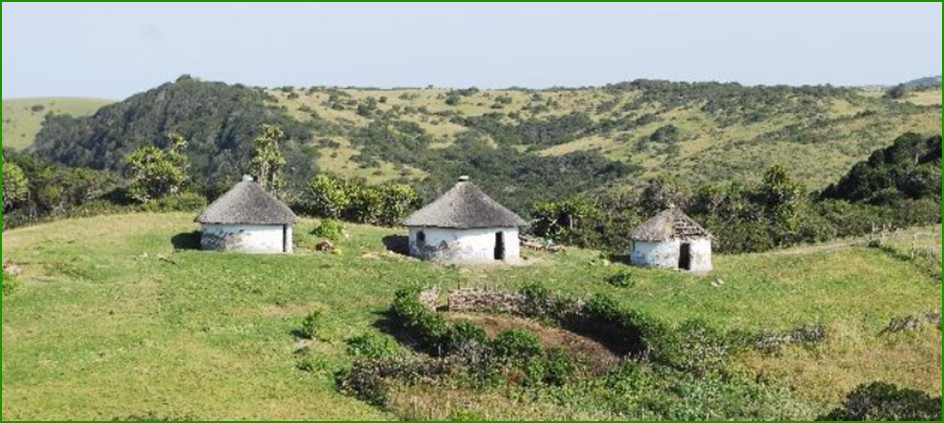
Photo: Traditional Xhosa self-sufficient household.
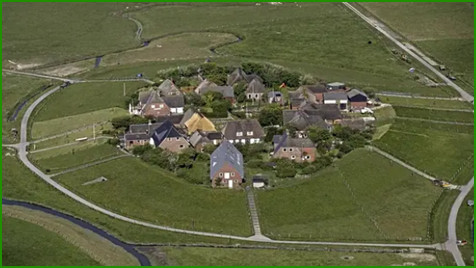
In similar vein, Chamois, a somewhat larger community with 99 inhabitants, is Italy’s first and only town without cars. In 1955, the issue of environmental sustainability was not a popular concept yet. Nevertheless, the village did not succumb to the impulses of “progress” and decided to build a cableway as the only means of connection with the valley floor. (Watch video)[1]. They are living, not in total seclusion of external services, but basically in harmony with nature.
[1]https://www.bbc.com/reel/video/p09qszny/the-small-italian-village-that-can-t-be-reached-by-car
The well-known Kibbutz system of Israel is a good example of simplistic cooperative, sustainable living. Everything is communally owned and managed.
Photo: Self-contained Re’im Kibbutz in Israel
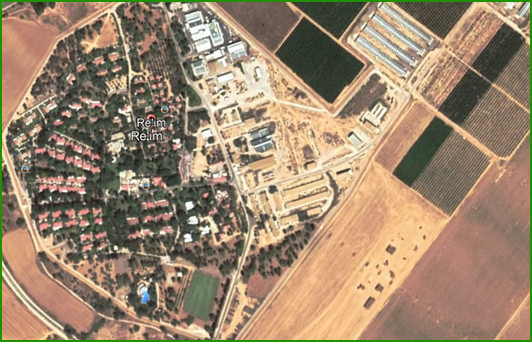
A South African example of a near-self-sufficient community is the town of Orania where the population of 2 800 live relatively independently from the economy of the rest of the country. Orania has its own local authority. They flourish in various ways. They have no crime, police, or prison facilities. They have a separate schooling system and (limited) medical services. Very little produce and other products are imported. In Orania, people from all levels of society perform their own manual labour with a resultant unemployment rate of 2% compared to the 34% of the rest of the country.

Photo: Google Earth image of Orania. (source: https://chat.openai.com/c/78593666-7923-4a2b-8edf-5a544fabd289)
Orania runs a local cooperative bank with its own monetary system and currency called the Ora, based on the idea of discount shopping vouchers. The town authorities have a strong focus on green practices, including recycling and conservation. The sharing of facilities (e.g., a bicycle-sharing system) helps to reduce living costs. Volunteers carry out neighbourhood watch patrols and chores such as trash removal. It is a unique, non-declining small town that shows the potential of side-lining the inefficient political and capitalistic driving system of the country at large by adopting a more simplistic and self-servicing lifestyle.
Standard of living can be measured according to your income and material possessions. Quality of life is measured according to your relationships – with God, fellow Human beings, and by the quality of the Environment in which you live. Striving for a higher standard of living leads to a decrease in the quality of life; a high quality of life makes a high standard of living irrelevant. (Authors)
The approach of degrowth incorporates a gradual curtailing of environmentally damaging industries in favour of environmentally friendly development as wel as a change of heart of people – especial by the super-rich. A solution via degrowth requires the development of a generic model. Simplistically said, this would include activities and facilities that can be privatised on an economically and ecologically effective way on local scale.
We as individuals and corporates can rise up to become effective managers of the ecosystem in which we live. To achieve this, we need to realise the failure of our global structures, schemes and plans, and come down from our “throne” of mastering the environment. It is by “falling up” from the failing system that we can get rid of self-serving authorities and rise to succeed.
If you and I are not willing to become pragmatically involved and revert to a more simplistic lifestyle, we will all be eliminated, and nature will flourish. A million years after the human race became extinct, you will barely notice we were here.
What is the use of asking such a question? After the final demise of the earth as we know it, a single-cell organism that might have survived, could ask: “Whose fault was it?” But what is the point of asking? It serves no purpose to ask such a question when a car has run over you. You should have assessed the danger before the accident happened and you should have taken precautionary steps.

Picture: Our future plans and technologies will have to respect the health of nature – the source of our livelihood.
Answer: NIMBI
If you want to predict the future, create it!